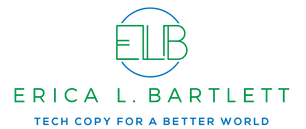Even if you’ve never heard of the photographer Platon, you may have seen some of his portraits. His pictures have appeared in Time, Rolling Stone, and Esquire, among others, and they include images of all living U.S. Presidents, Mohammed Ali, and Stephen Hawking, to name a few.
Those experiences have given him a somewhat unique perspective on what makes a great leader, an idea he shared at a recent talk. And the quality he mentioned is something great writers have, too.
Empathy.
Why empathy matters
From a leadership standpoint, empathy is important because you need to understand the people you’re leading. Not only that, but you need to be able to relate to them, to recognize their challenges, pains, and needs. You also have to know why those things are challenges so you know how to address them.
The same is true for copywriting and content writing.
In fact, at its heart, marketing is about empathizing so well with your audience that you know what they need – sometimes before they do – and can offer them a solution. Without that level of understanding, your prospects aren’t going to trust that you can help them.
But don’t over-empathize
The tricky part is not to relate so much that you forget you’re not your audience.
It’s an easy mistake to make. When you relate to someone, you can start to feel like you have everything in common. But that’s not the case.
Your prospects and clients come to you because you can do something they can’t, or can’t do as well or as quickly as you can. Their pain points are different than yours. If you write like you’re in the same place they are, they may not feel confident in your product or service.
Find the right balance of understanding where they’re at, while also showing that you have the knowledge and resources to move them forward.
What this means for sustainability
This balance can be tough to find, including in the world of sustainability. Because your motivation for doing your work may not match what influences your clients.
Many people get into sustainability work because it’s meaningful for them. They like knowing they’re doing something that will help the planet and future generations. Maybe you fall into this category.
Some of the people interested in sustainable products or services might share those values, but not all of them. Or it might not be their first priority.
Take solar panels. Some might want them because it means a smaller carbon footprint. But you might reach more people if you focus on the benefits of becoming energy independent and not being subject to changing electricity prices.
Or consider net zero houses. They’re great from an energy perspective, but they also tend to be more comfortable (no drafty spots) and healthier (filtered air). For many homeowners, the comfort and health aspects are more important than the energy – though that could be an added benefit.
Start by listening
How, then, do you understand where your audience is coming from and what matters to them?
As with being a good leader, it starts with listening. Pay attention to what people are saying, and how they’re saying it.
And ask questions. If it seems like something more might be going on, try to find out more about the situation.
For example, if someone is looking for a new heating solution because they’re often cold in their house, it would be worth asking if they’ve done an energy audit to identify any current problems with heat loss.
Or if someone wants to get solar panels because of high electricity bills, see if you can also help them find ways to reduce their electrical usage, so they can maximize their use of solar.
Stay curious
A lot of this starts with being curious about where your clients and prospects are coming from. And that brings me back to one of the stories Platon shared, about Stephen Hawking.
The photographer got the last official photo of Hawking, and on that visit, Platon asked Hawking to share one word of wisdom.
As you may recall, it was difficult for Hawking to communicate. He had to use a cheek muscle to move a cursor on a computer to select a letter at a time. This wasn’t ideal in the best of circumstances, and by the time of the photo, he was very weak.
But he did share one word: “Wow.”
To me, that expressed not only the wonder Hawking felt about the universe, but also his curiosity. Because to experience that level of amazement, you have to be curious and open enough to receive it.
In the same way, it helps to be curious and open-minded with people. If you can go in with a sense of exploration, instead of with preconceptions, you’ll be able to meet people where they’re at.
And when you do, you’ll be off to a great start with having empathy for your audience, and offering them what they truly want and need.

1 thought on “Try This Approach to Reach Your Audience”
Comments are closed.